On a recent January afternoon, Trixie Mattel — out of drag as her creator, Brian Firkus — runs through the streets of Los Angeles while, simultaneously, conducting a phone interview with Out Traveler. Along the way, she ticks off the sights on her route: the Hollywood sign gleaming on the hillside above “human feces and hypodermic needles…a perfect metaphor for Hollywood in general,” Mattel laughs.
Mattel, 32, is a marathon runner; she completed one race last year but had to miss another recently due to a health concern. It is probably the least-known pastime of “one of the most powerful drag queens in America,” as ranked by Vulture in 2019.

Since first appearing on RuPaul’s Drag Race in 2015 and winning All Stars in 2018, the multi-hyphenate Mattel has launched a small business empire: she is the CEO of Trixie Cosmetics; co-host of the popular web series UNHhhh alongside frequent collaborator and co-conspirator Katya Zamolodchikova (the pair are embarking on a nearly sold-out tour this year); a singer-songwriter with three albums and an upcoming double LP, The Blonde & Pink Albums; a judge on the Paramount+ reality singing competition Queen of the Universe; and co-owner of Wisconsin’s oldest gay bar, This Is It!.
Running is Mattel’s escape from her busy, bewigged schedule — “I dress up more on a daily basis than most people dress up on Halloween,” she shares. The act is also a metaphor for how she approaches her life pursuits. One mile follows another. And “the more I push myself, the more I’m like, well I already did [that],” Mattel says. “What’s next? How do I just do the thing that scares me, that I can pour myself into that final product [and] will just make me feel like I’m flying because I love it so much?”

That next big thing with wings is hospitality. As of the writing of this article, Mattel is preparing to open the Trixie Motel, a seven-unit motel in Palm Springs. Its opening will coincide with the launch of a reality TV show, eponymously named Trixie Motel, which will document Mattel’s renovation of the building alongside her boyfriend and co-owner, producer David Silver. The eight-episode Discovery+ series is produced by Scott Brothers Entertainment, known for helming the HGTV hit, Property Brothers.
Trixie Motel is no ordinary renovation show — just as its punny namesake is no ordinary lodging. “There has never, ever, ever been a motel like this, and there has never been a renovation show like this. It is going to leave people’s jaws on the floor,” Mattel promises. “The property is so beautiful, and we have created something that truly feels like the heart of it — even though it’s an artificial heart…like it’s a pig heart installed after your grandpa’s heart attack.”

Neither she nor Silver had ever executed a project of this scale before, and the process — begun in 2021 with the assistance of a designer, Dani Dazey — has become a literal stress test for the couple. “Us having to learn about renovation in real time is — let’s just say you should measure twice, cut once. We kind of learned that the hard way a lot of the time,” Mattel laughs. “Everything takes twice as long and costs twice as much money and puts twice as much stress on your relationship.”
But ultimately, the act of building and beautifying together has had a positive spillover effect. “It’s been like pouring cement, and the property is honestly pouring cement in our relationship,” Mattel says. “I’ve never trusted him or loved him more.… I believe in him one million percent more than I did before even.”

During this undertaking, Mattel gained new skills and a newfound appreciation for the art of home improvement. “Reupholstering is incredible,” Mattel marvels. “You can get an old piece of furniture, sand it down, and repaint it and redo the cushion, and it is a brand-new chair.” She adds, “Painting a room costs almost nothing. But it just completely transforms a space.” Mattel compared the effect to applying lipstick, “the fastest way to change your look and brighten your day.”
At the time of this interview, Mattel stayed mum about specific design details of the motel. “Property Brothers will shoot me in the face,” Mattel jokes if she spills the beans ahead of the show’s premiere. However, “I wanted to put this motel in drag,” she explains, adding, “Each room feels like a different day in my closet.” The “closest” comparison to Trixie Motel would be A Very Brady Renovation, she surmises, referring to the HGTV show documenting the makeover of The Brady Bunch home.

One hint? The external design process involved some internal brand review. “We’ve definitely took the facets of the Trixie vibe and aesthetic and dove in those directions,” says Mattel, who describes her divergent drag distillations as “pink,” “yee-haw,” and “California beachy.” Indeed, an Instagram peek at the motel’s courtyard shows Mattel, in a blonde bouffant and skin-tight magenta ensemble, sitting on the ledge of an empty pool and holding a sledgehammer. Behind her is a pink wall and the classic Palm Springs backdrop: palm trees, blue skies, and the San Jacinto Mountains. Aesthetically, Trixie fits in seamlessly with these environs. “Trixie was this character I created that happened to be very California, very ’60s, very clean and retro, which is very Palm Springs,” Mattel says.
The queer-friendly resort town holds a special place in the heart of the Wisconsin native and her partner, who have been vacationing there “since forever.” She cites affinity attractions like Iconic Atomic, a “fabulous” vintage clothing and furniture store; the gay bar Blackbook, which serves “incredible” vegetarian nachos; and the town’s embrace of LGBTQ+ elders, which makes P.S. “the city where everyone’s young forever.” This reverence is why Mattel wanted to be respectful of the California desert town’s culture. “Our biggest fear was doing anything generic,” she says. “I love Palm Springs. We were not going to be two fags who hang up an Andy Warhol and call it visionary.”

There’s a long history to consider. The region was first settled about 2,000 years ago by the Cahuilla people; it’s first name was “Se-Khi,” which translates to boiling water in the Cahuilla language. (Incidentally, Mattel herself is half Ojibwe.) This Indigenous heritage persists in the names of Native American notables gracing many of Palm Spring’s street signs and portions of the Agua Caliente Reservation overlapping the city limits. In the 20th century, partially due to the area’s hot springs and stunning mountain vista, the town became a popular resort destination for the rich and famous and blossomed into an oasis of mid-century modern architecture and art. Its attraction for Old Hollywood — especially male movie stars seeking out the springs — helped establish Palm Springs as an LGBTQ+ mecca by the ’70s and ’80s, particularly for those looking to retire in a warmer, more low-cost area than city gayborhoods.
In moving into the Palm Springs community, Mattel didn’t want to stand out as a nonnative plant. When planning the motel’s renovation, the drag performer asked locals, “What’s the main thing you shouldn’t do when you start a business here?” The advice she received, again and again, was not to import “something that works” elsewhere, like Los Angeles or New York. “It doesn’t work like that,” Mattel recalls being told. “Whatever you put here, you have to integrate into the lifestyle and the vibe, the energy, the color palette. Build something with Palm Springs in mind…. And don’t try to bring something that doesn’t belong.”

Additionally, there are the “extremely high standards” Mattel sets for herself in her creative pursuits, which fans also expect. “They’re gonna want to be transported when they come in,” asserts Mattel. She has already spotted several super-sleuths who discovered the motel’s location and took photos in Trixie merch in front of the building’s pink façade.
This kind of real-life interaction is exactly what Mattel envisioned. The motel is a brand “extension of the character,” the performer explains. “I just always think how can we make this character more three-dimensional, and how can we make this experience more rich? And how can we do things that no drag queen has ever done before?”

“I believe in Trixie. She’s my Mickey Mouse, I’m her Walt Disney,” says Mattel, calling Trixie “almost a caricature of Americanized beauty and success and ignorance and Caucasity…. I guess in that way, it’s fun to actually capitalize on this character. You get to parody success while being successful.” As she does with her gay bar, Mattel hopes to enhance this unique fan experience with surprise appearances. “I want to go in drag and knock on the doors and clean the rooms. Or like, 9 a.m. on a Sunday, people get woken up by me DJing by the pool unannounced,” she laughs.
While shooting for the moon, Mattel bemoans how other P.S. property owners have gravitated toward the generic. “I stayed in at least two dozen Airbnbs in Palm Springs, and I couldn’t tell one from the other. I mean, for a city full of highly creative people, I always wanted more,” she says. In fact, Mattel’s initial plan was to purchase a Palm Springs property for use as an Airbnb. But the listing of the motel — formerly Ruby Montana’s Coral Sands Inn, which featured individually themed rooms like “Liberace” and “Yiddish cowgirl” — inspired her to dream bigger. Mattel was drawn in by the “magic of the place. I mean, it was just — it was like it was waiting for us. It was like, the universe gives you stage direction,” she says in reference to a RuPaul saying. The cost, Mattel shares, was about $1.9 million to buy and $500,000 to renovate.

This is not Mattel’s first brick-and-mortar investment. In 2021, while gay bars were closing in droves due to the pandemic, she became a co-owner of This Is It! alongside business partner George Schneider. The queer watering hole was originally founded in 1968 — a year before the Stonewall uprising — by June Brehm and Michael Latona. It is now the site of the Wisconsin LBGTQ History Project, which displays an exhibit on the area’s LGBTQ+ history.
Apart from this legacy, This Is It! holds personal significance for Mattel. “That was the bar where I got my first drink,” she says, recalling how she used to dress in drag as a once-broke creative to score free libations. Milwaukee itself remains a favorite destination of Mattel’s. She speaks fondly of a studio she owns there as well as eating beer cheese soup, a local favorite that mixes beer, Cheddar, and vegetables. She also loves to peruse local foods at the Milwaukee Public Market. After the snows melt, “every day is like Mardi Gras” in Milwaukee, Mattel raves, painting a portrait of summer concerts, shorts, and day-drinking.

In being a high-profile owner of a gay bar, Mattel hopes to inspire other LGBTQ+ people to invest in their communities. “Queer spaces matter. Gay bars close left and right,” she says, stressing how even one purchase at a queer space makes a difference. After a taste of brick-and-mortar properties, Mattel hopes to one day open gay bars in Los Angeles and Palm Springs and expand her motel enterprise to Provincetown and Florida.
A few short years ago, it would have seemed inconceivable to many that a drag queen could successfully run a business portfolio as diverse as Mattel’s — and have the ambition to conquer new fields where no queen has strutted before. But Mattel sees her barrier-breaking work as part of a higher calling.
“Drag queens don’t really belong anywhere.… We’re disruptors in general. We’re men who don’t even belong in dresses,” Mattel says. “So, I’m just always thinking, how can we do more? How can Sylvester, and RuPaul, and all these people who literally paved, brick by brick, [the way to make] this possible for someone like me to do this in 2022 — I almost feel like, well, how dare I not pursue these things?”
This piece originally ran in Out Traveler print magazine. The Spring 2022 issue is now available on newsstands.






















































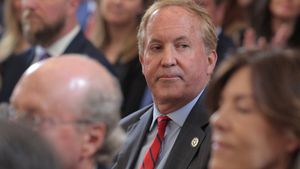













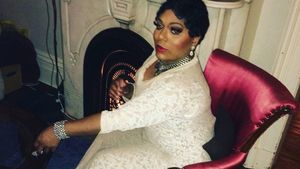















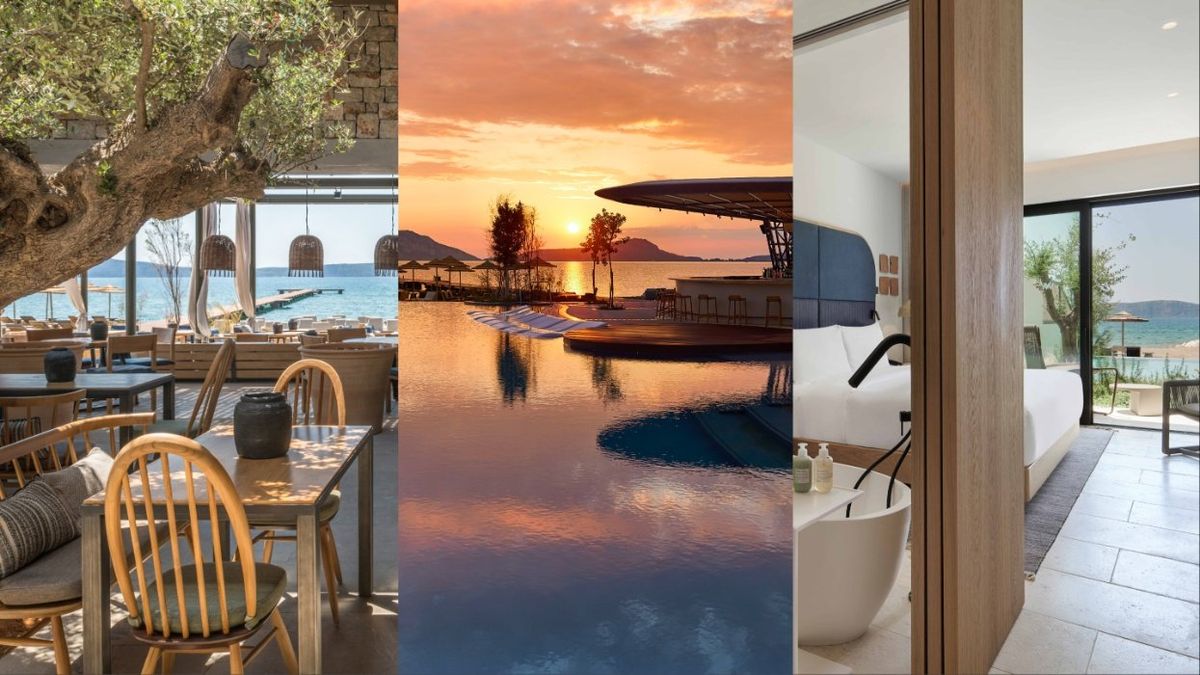



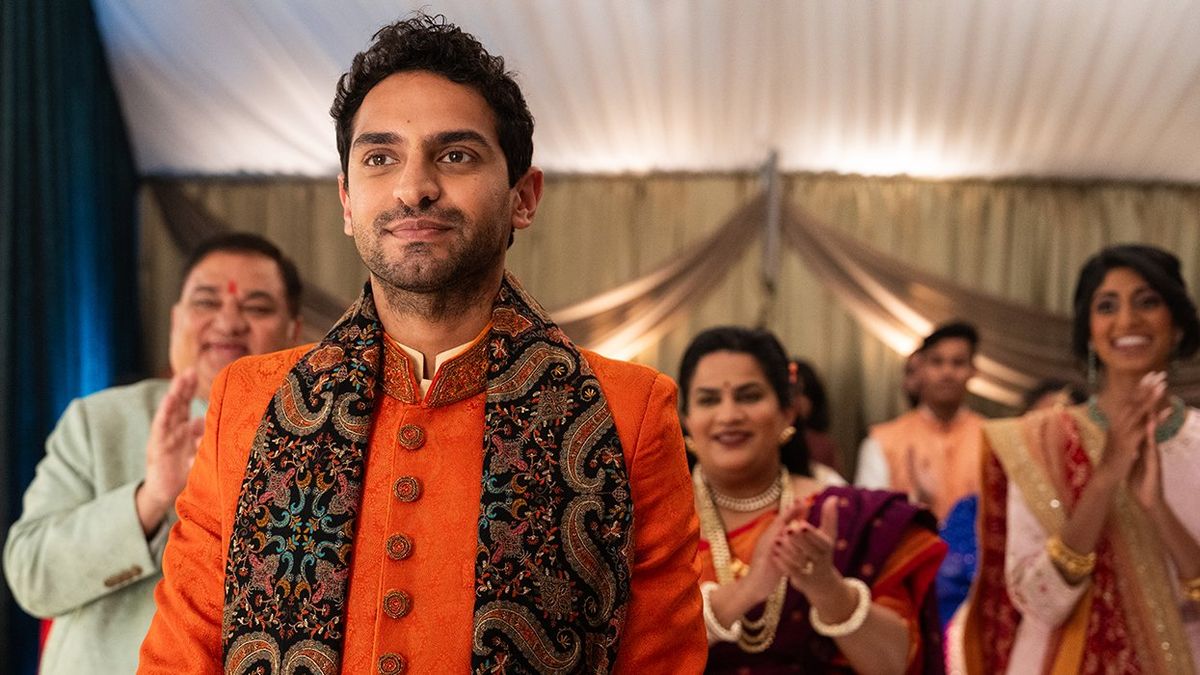
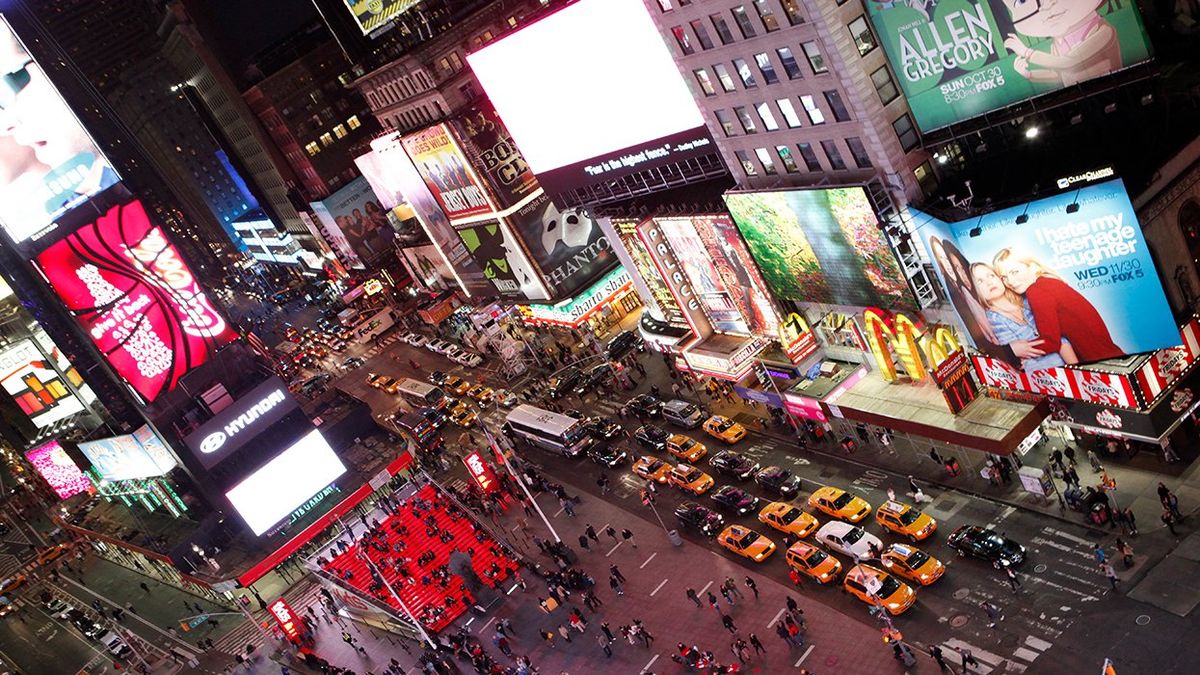
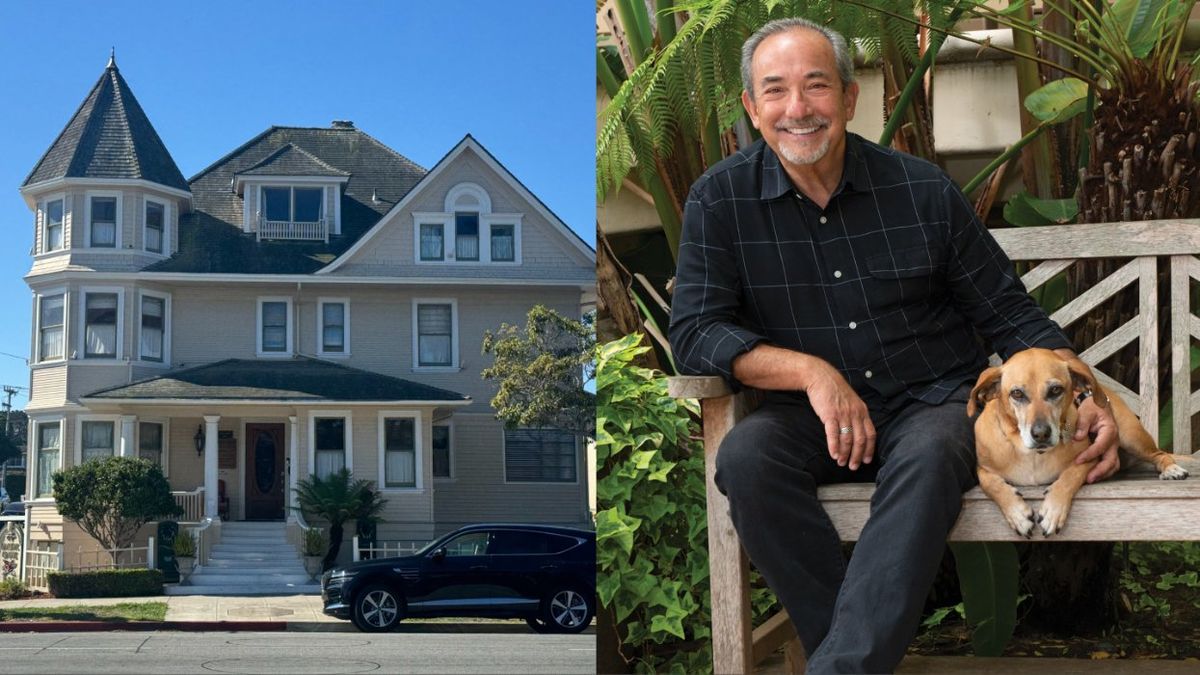





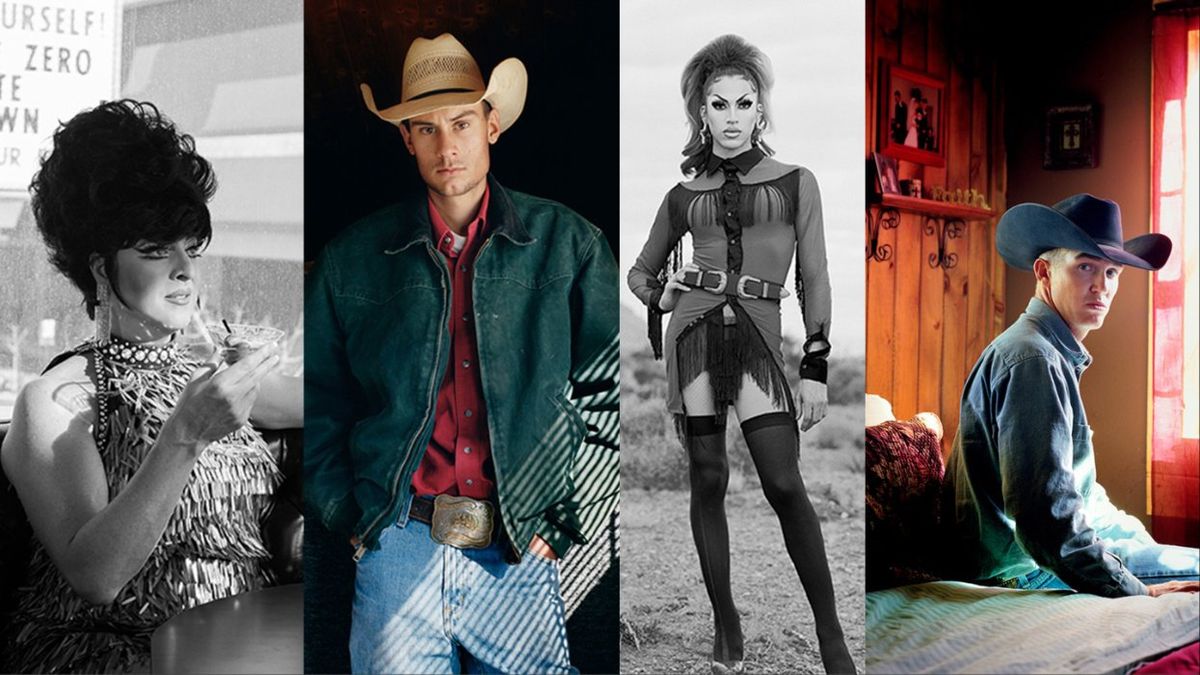



Exclusive: Lady Bunny releases new 'Hot To Blow' video